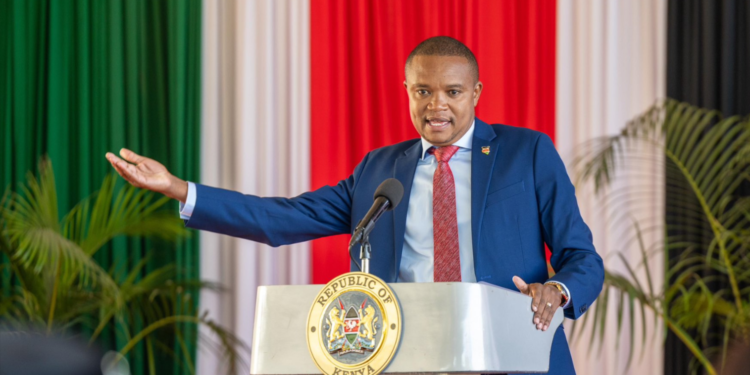The Finance and National Planning Committee has raised concerns over Clause 63 of the Finance Bill 2024, which grants the Kenya Revenue Authority (KRA) access to personal data. The committee concluded that the proposal might not meet constitutional standards, potentially infringing on privacy rights as enshrined in the Kenyan Constitution.
In a comprehensive report tabled by Kuria Kimani, Chairperson of the Finance and National Planning Departmental Committee, the committee scrutinized the proposed amendment to the Data Protection Act (Cap. 411C). This amendment would authorize data controllers or processors to disclose personal data to KRA without explicit consent from the data subjects for tax assessment, enforcement, or collection purposes.
The committee noted that the proposal might violate Articles 31(c) and (d) of the Constitution of Kenya, which safeguard the privacy of individuals. Article 31 explicitly protects against “the unnecessary revelation of information relating to family or private affairs” and “the privacy of their communications”. The committee emphasized that any encroachment on these rights must be justified under Article 24, which outlines the circumstances under which rights may be limited.
“The proposal to allow KRA access to personal data as presented may not meet the constitutional threshold,” stated Kimani. This indicates a potential overreach by the KRA, compromising the balance between efficient tax collection and individual privacy rights.
The committee’s report also highlighted existing legislative frameworks that govern data access. Section 51 of the Data Protection Act delineates specific circumstances under which data exemptions might apply. Moreover, Section 60 of the Tax Procedures Act already empowers the commissioner or an authorized officer, under a warrant, to access data for tax administration purposes.
“The existing provisions under the Data Protection Act and the Tax Procedures Act already provide sufficient mechanisms for data access by KRA under warranted conditions,” the report stated. This implies that the proposed changes might be redundant and unnecessarily invasive.
During public participation, the committee received a plethora of submissions from various stakeholders, including legal experts, data protection advocates, and industry representatives. The overwhelming sentiment was one of caution, urging the government to carefully balance tax administration needs with privacy protections.
“The need for efficient tax administration is understood, but it should not come at the cost of eroding fundamental privacy rights,” argued the Centre for International Private Enterprise during the public hearings.
Based on these insights, the committee recommended a thorough review and possible revision of Clause 63 to ensure it aligns with constitutional mandates and existing legal frameworks. They urged the National Assembly to consider these recommendations seriously to avoid potential legal challenges and public backlash.
“The Finance Bill 2024 aims to enhance fiscal stability and support governmental programs, but this must be achieved within the bounds of constitutional rights and legal propriety,” the report read.











